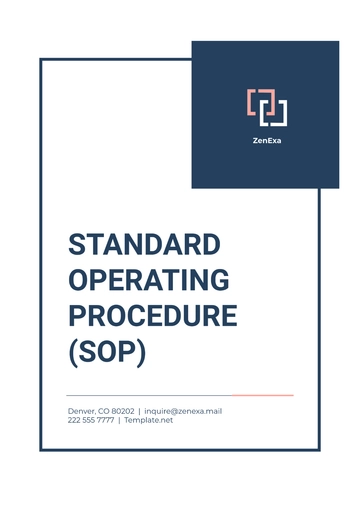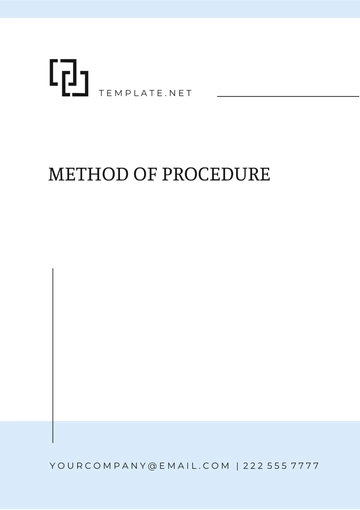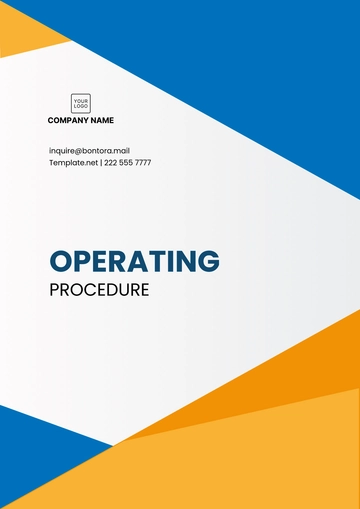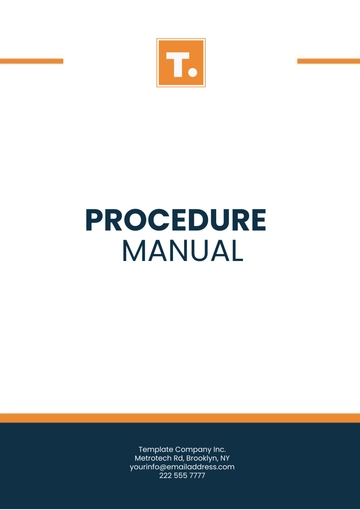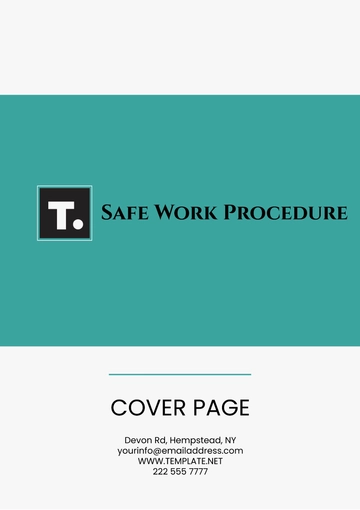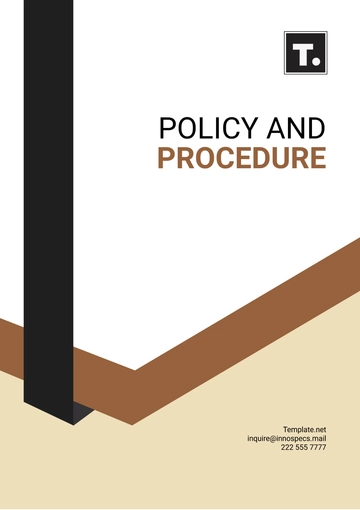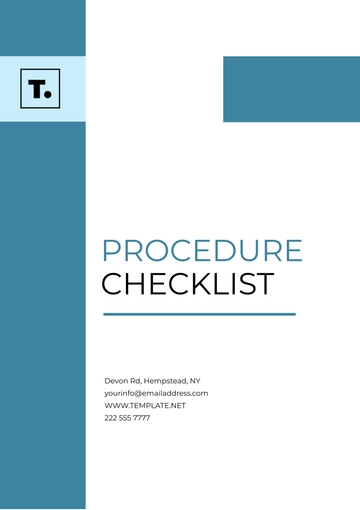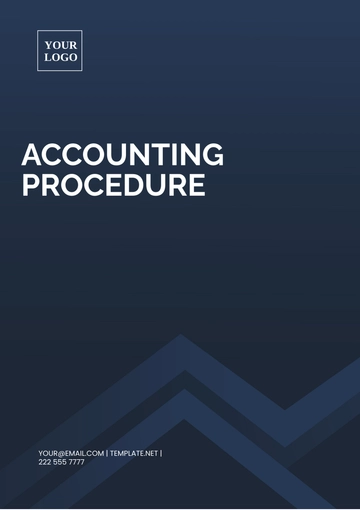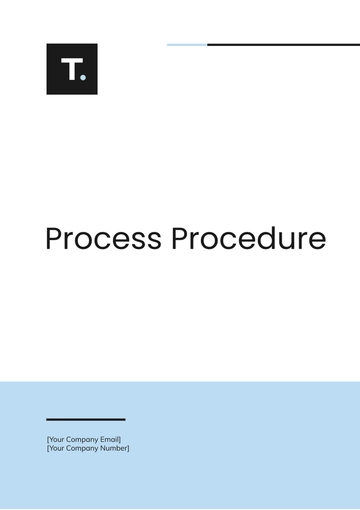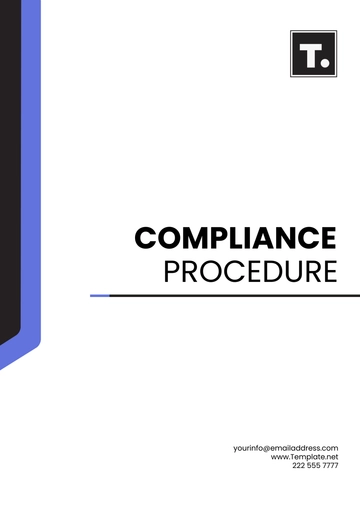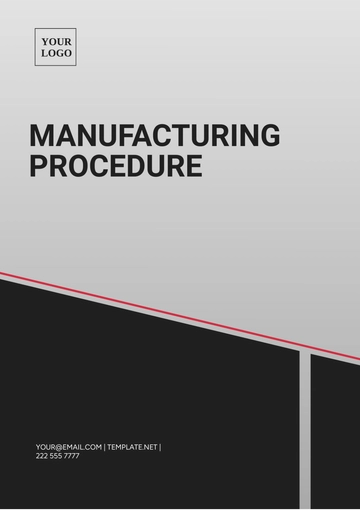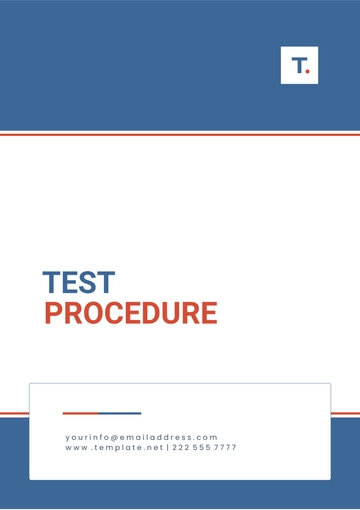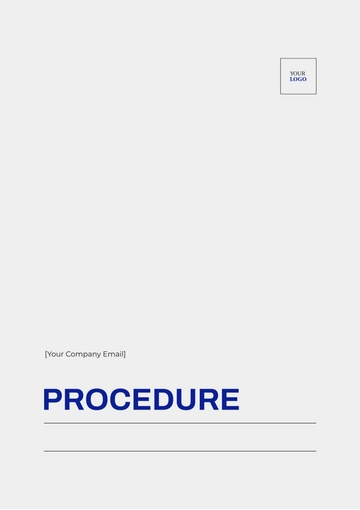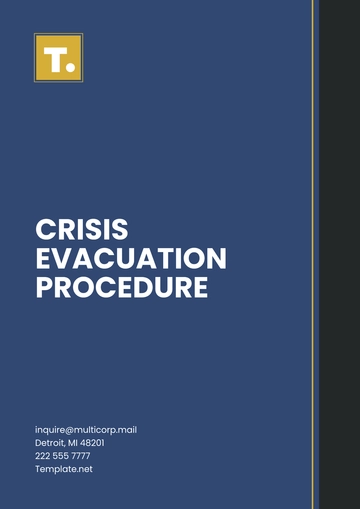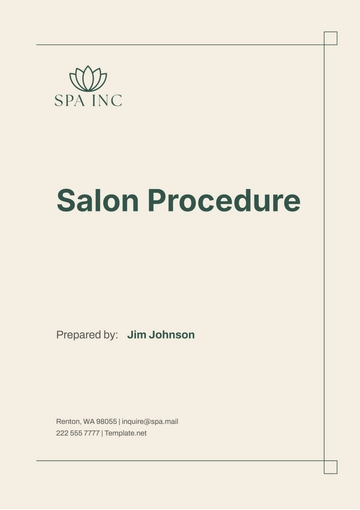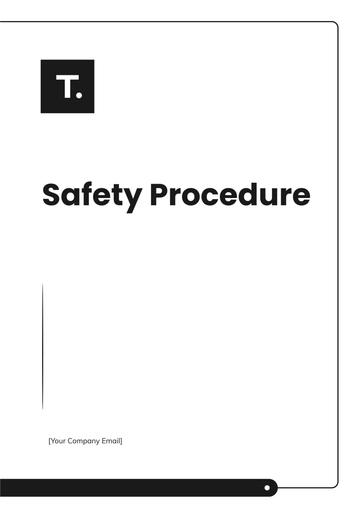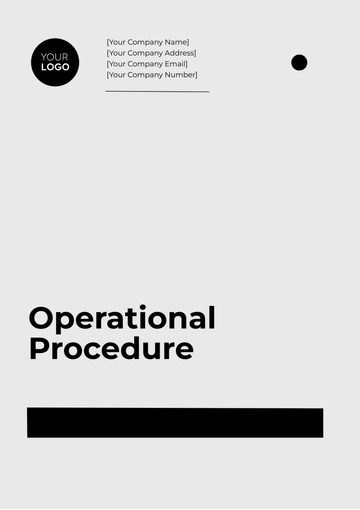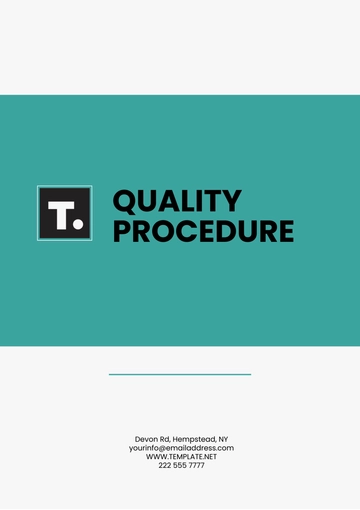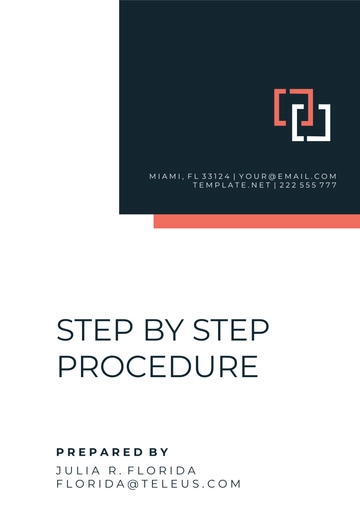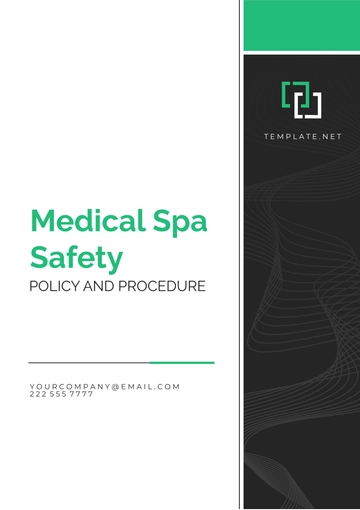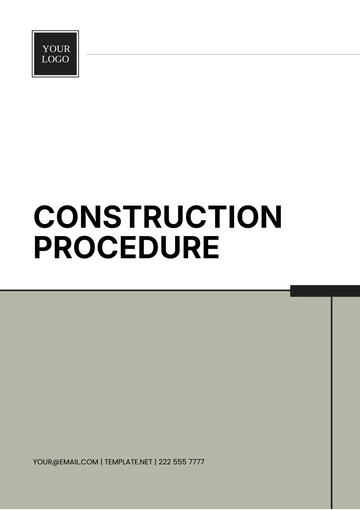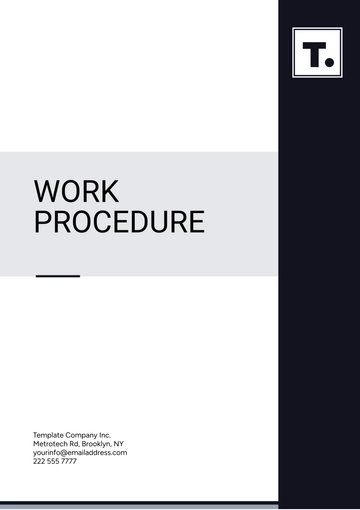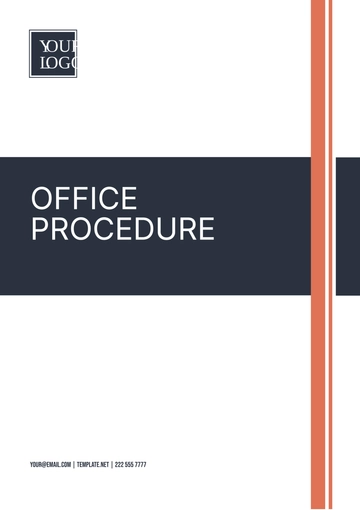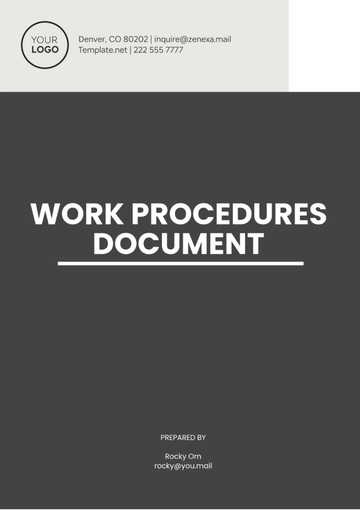Free Gym Staff Safety Training Procedure
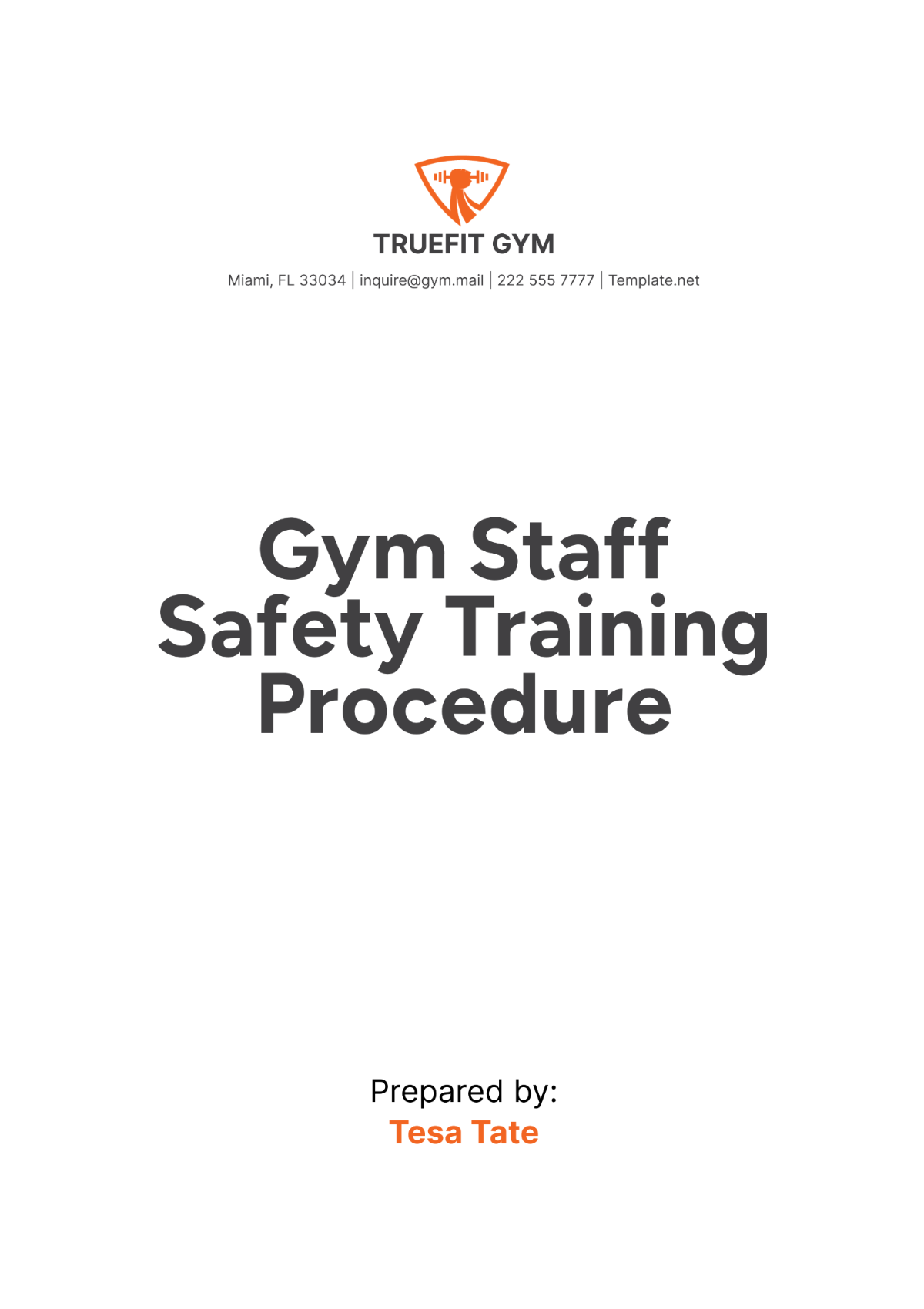
I. Introduction
The purpose of our Gym Staff Safety Training Procedure is to equip our staff with the knowledge and skills necessary to maintain a safe environment for all members and employees. This document outlines the guidelines and procedures to prevent accidents and injuries, ensuring a secure and healthy gym experience for everyone.
II. General Safety Guidelines
A. Fire Emergency
In the event of a fire, it is crucial to act swiftly and calmly to ensure the safety of everyone in the gym. The following steps should be followed:
Activate the nearest fire alarm.
Call emergency services immediately.
Evacuate all members and staff from the building using the nearest exit.
Do not use elevators during a fire evacuation.
Assemble at the designated meeting point outside the building.
Ensure everyone is accounted for and report any missing persons to emergency responders.
B. Medical Emergencies
Medical emergencies require prompt and effective response to minimize harm. The following steps should be taken:
Assess the situation and ensure your own safety.
Call emergency services immediately.
Provide first aid or CPR if trained and if necessary.
Use the AED if needed and if trained in its use.
Stay with the injured or ill person until emergency services arrive.
Record the incident in the incident log after the situation is under control.
C. Evacuation
In case of an emergency requiring evacuation, it is important to follow these steps:
Sound the alarm to alert everyone in the building.
Guide members and staff to the nearest exits.
Ensure that everyone evacuates in a calm and orderly manner.
Check all rooms, including restrooms and locker rooms, to ensure no one is left behind.
Assemble at the designated meeting point outside the building.
Account for all members and staff, and report any missing persons to emergency responders.
D. Incident Reporting
All incidents, including accidents and near-misses, must be reported promptly to improve safety measures. The procedure for incident reporting is as follows:
Complete an incident report form detailing the incident.
Submit the form to the designated safety officer or manager.
The safety officer or manager will review the report and initiate an investigation if necessary.
Implement corrective actions to prevent recurrence of the incident.
Maintain a record of the incident and actions taken in the incident log.
E. Safety Equipment
Knowing the locations and proper use of safety equipment is essential. The table below lists the locations of first aid kits, fire extinguishers, and AEDs:
Safety Equipment | Location |
|---|---|
First Aid Kits | Reception area, gym floor, office |
Fire Extinguishers | Near exits, gym floor, locker rooms |
AEDs | Reception area, gym floor |
III. Equipment Safety
A. Inspection and Maintenance
Regular inspection and maintenance of gym equipment are critical to ensure safety. The following table outlines the maintenance schedule:
Equipment | Frequency | Maintenance Tasks |
|---|---|---|
Treadmills | Weekly | Check belts, lubricate parts |
Weight Machines | Monthly | Inspect cables, tighten bolts |
Free Weights | Monthly | Check for cracks, clean surfaces |
Cardio Machines | Bi-weekly | Inspect for wear and tear, clean |
B. Proper Usage
To prevent injuries, it is essential that all gym equipment is used correctly. The following guidelines should be adhered to:
Always follow the manufacturer's instructions.
Ensure members are properly trained on equipment usage.
Use spotters when lifting heavy weights.
Avoid overloading equipment beyond its capacity.
Report any malfunctioning equipment to management immediately.
C. Signage and Instructions
Clear signage and instructions help in maintaining safety in the gym. The following guidelines should be followed:
Post clear instructional signs near each piece of equipment.
Include visual aids and diagrams where possible.
Ensure emergency exits and safety equipment locations are clearly marked.
Display rules and guidelines prominently throughout the gym.
Update signage regularly to reflect any changes in safety procedures.
IV. Member Safety
A. Health Screening
Conducting health screenings for new members is essential to identify any potential risks and ensure a safe workout experience. Health screenings should include:
Collecting medical history and current health status.
Assessing fitness levels and identifying any limitations.
Recommending appropriate exercises and modifications.
Providing information on safe gym practices.
Monitoring progress and updating health information regularly.
B. Supervision
Adequate supervision is necessary to ensure member safety, especially during peak hours and high-risk activities. Staff should actively monitor the gym floor, assist members with equipment usage, and intervene when unsafe practices are observed. Supervisors must be readily available to respond to any questions or emergencies, ensuring a safe and supportive environment for all members.
V. Staff Roles and Responsibilities
A. Role Clarification
Clear definition of roles helps ensure all safety protocols are followed. The table below outlines the roles and responsibilities of different staff members:
Role | Responsibilities |
|---|---|
Gym Manager | Overseeing overall safety procedures, incident response |
Safety Officer | Conducting inspections, maintaining safety equipment |
Fitness Trainers | Assisting members with equipment usage |
Front Desk Staff | Managing incident reports, communicating emergencies |
B. Communication
Effective communication among staff members is vital for maintaining safety. Strategies include regular staff meetings to discuss safety issues, using radios or intercoms for quick communication during emergencies, and maintaining a clear chain of command for reporting incidents and safety concerns. Encouraging an open dialogue about safety ensures that all staff members are aware of their roles and responsibilities.
C. Continual Training
Ongoing education and training programs help staff stay updated on safety procedures. The table below outlines the training program:
Training Program | Frequency | Duration |
|---|---|---|
First Aid and CPR | Annually | 4 hours |
Equipment Safety | Bi-annually | 2 hours |
Emergency Procedures | Quarterly | 1 hour |
Incident Reporting | Annually | 1 hour |
VI. Documentation and Record-Keeping
A. Incident Logs
All incidents, including accidents and near-misses, must be documented accurately and promptly. Staff should complete an incident report form immediately after an incident occurs, detailing the nature of the incident, those involved, and any actions taken. The safety officer will review the reports, implement corrective measures, and maintain a record in the incident log for future reference.
B. Training Records
Training records must be maintained to ensure all staff members are up-to-date with their safety training. Staff should document the completion of each training session, including the date, topics covered, and the names of participants. These records should be reviewed regularly to identify any gaps in training and schedule necessary sessions.
C. Maintenance Records
Regular maintenance of gym equipment is critical for safety. Staff must document all inspections and maintenance activities, including the date, equipment serviced, and any issues found or repairs made. These records should be kept up-to-date and reviewed periodically to ensure compliance with maintenance schedules and identify any recurring problems.
VII. Review and Improvement
Regular reviews of safety procedures and protocols help maintain a safe gym environment. Staff should conduct periodic evaluations of safety measures, gather feedback from members and staff, and analyze incident reports to identify areas for improvement. Implementing changes based on these reviews and feedback ensures continuous enhancement of our safety practices, fostering a culture of safety and vigilance among all staff members.
- 100% Customizable, free editor
- Access 1 Million+ Templates, photo’s & graphics
- Download or share as a template
- Click and replace photos, graphics, text, backgrounds
- Resize, crop, AI write & more
- Access advanced editor
Discover the Gym Staff Safety Training Procedure Template on Template.net. This editable and customizable template is essential for crafting comprehensive safety protocols for gym personnel. Easily adjust it in our AI Editor tool to fit specific requirements, ensuring staff are well-prepared and facilities operate safely. Ideal for gym managers prioritizing employee training and workplace safety.


